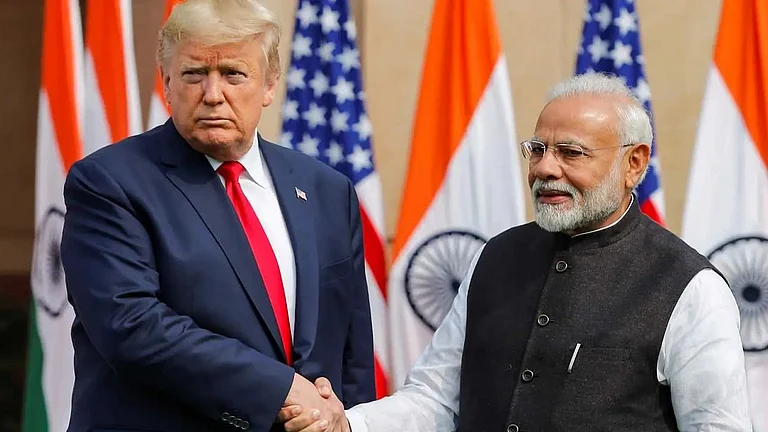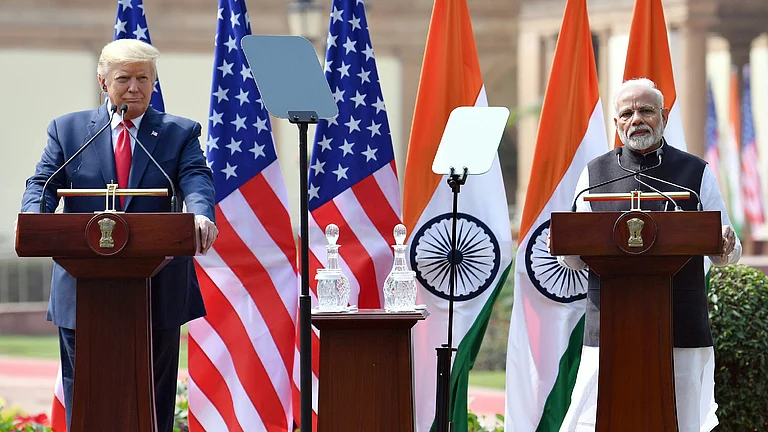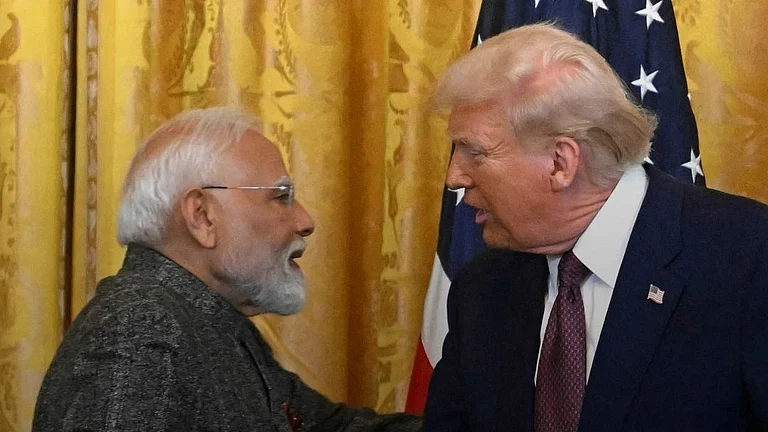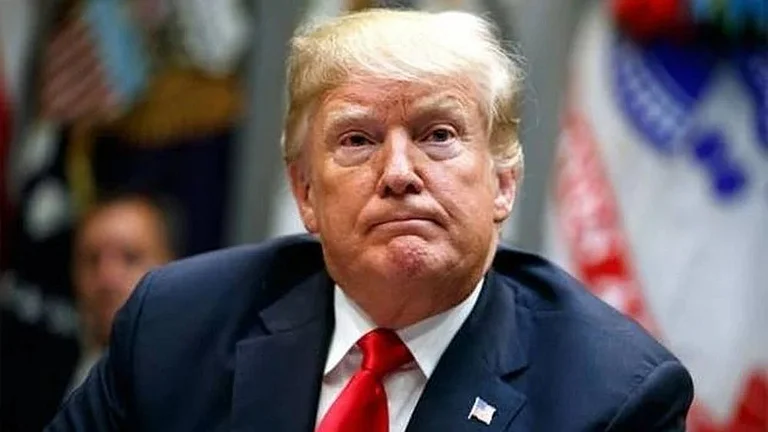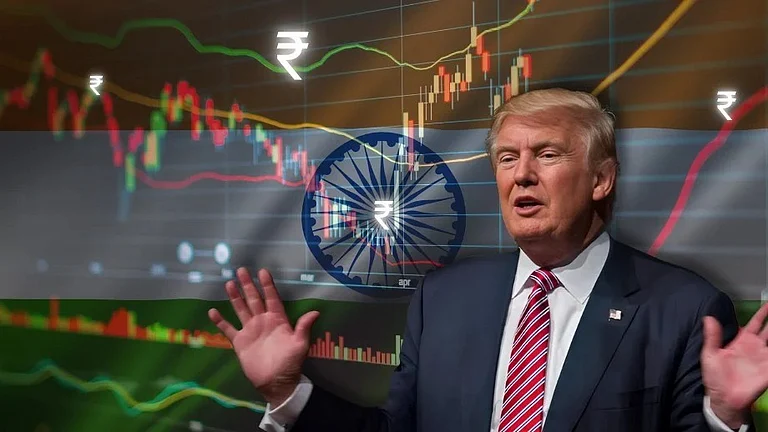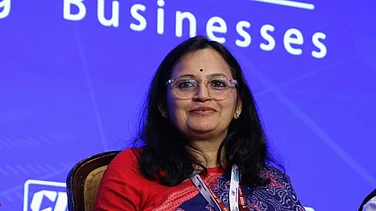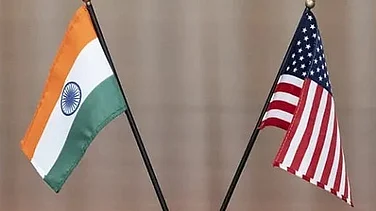
Trump announces US-Pakistan oil deal despite limited proven Pakistani reserves
Pakistan ranks 52nd globally with just 0.021% of world oil reserves.
Experts say the claim is political, not backed by current exploration data
Just hours after imposing a sweeping 25% tariff rate on Indian exports to the US and issuing an unspecified 'penalty' over New Delhi’s continued energy ties with Russia, President Donald Trump announced a new energy partnership with Pakistan on Thursday. Trump also claimed that the US would help develop Pakistan's massive oil reserves.
"We have just concluded a deal with Pakistan, whereby Pakistan and the US will work together on developing their massive oil reserves. We are in the process of choosing the oil company that will lead this partnership. Who knows, maybe they’ll be selling oil to India someday!" Trump said in a post on Truth Social, a social-media platform owned by Trump Media and Technology Group.
Trump's bold claim, amid his pressure on India to cut ties with Russian crude oil, raises questions around Pakistan’s oil reserves and if indeed, such a deal could reshape India’s oil strategy.
Data vs Rhetoric
Despite Trump's grand rhetoric, Worldometer, a website that provides real-time statistics and counters, reveals that Pakistan ranks 52nd globally with 353.5mn barrels of proven oil reserves as of 2016, the latest year with complete data in all categories. It accounts for just about 0.02% of the world's total oil reserves of 1.65trn barrels.
"Donald Trump’s loud claims about 'massive oil reserves' in Pakistan seem overstated and not backed by facts," says Himanshu Trivedi, associate vice-president at Avalon Consulting, an Asia-focused strategy-advisory firm.
Pakistan produces 88,262 barrels per day (bpd) of oil, making it 53rd in the world and consumes 5,56,000 bpd of oil, shows data from 2016. It imported 24% of its oil consumption, 1,35,201 bpd, in the same year.
Trivedi feels Trump’s claim is less likely a serious commercial proposition and more a politically motivated action. "There’s no current evidence or momentum that would justify such a strong statement about Pakistan’s energy future," he added.

The Basis for the Claim
Trump's assertion may stem from speculative findings over recent years. Over the past couple of years, surveys in Pakistan’s offshore Indus Basin in the Arabian Sea have reportedly identified promising rock formations that might hold large hydrocarbon deposits.
"Two US scientific assessments by the Energy Information Administration in 2015 and the US Geological Survey in 2017 estimate Pakistan may hold up to 9.1bn barrels of technically recoverable shale oil and about 164mn barrels of conventional oil, alongside significant gas prospects. However, these figures reflect risk-adjusted resource estimates, not confirmed recoverable reserves," says Prateek Bedi, assistant professor of finance and accounting at International Management Institute.
Bedi also underlines that no deep-water wells have been drilled yet in proposed zones such as the lower Indus Basin, nor has any commercial extraction taken place.
In September last year, a Pakistani Urdu news channel, DawnNewsTV reported the discovery of a substantial deposit of petroleum and natural gas in Pakistan’s territorial waters, exploitation of which could change the country’s destiny. If proven, such a deposit could place Pakistan among the top oil-rich nations. However, there is no report that exploratory drilling has confirmed any sizable oil in these offshore structures yet.
In a follow-up with DawnNewsTV, former Oil and Gas Regulatory Authority member Muhammad Arif clarified that even though Pakistan should remain optimistic, there is no certainty that the reserves would be discovered as expected.
However, Baloch human rights defender, Mir Yar Baloch, has opposed Pakistan’s claim over these oil resources not only as “false” but a “deliberate attempt to misappropriate Balochistan’s wealth for political and financial gain.” He stressed that the untapped reserves of oil, natural gas, copper, lithium, uranium and rare earth minerals are “not located within the territories of Punjab, which is the actual Pakistan”, but instead belong to the “Republic of Balochistan, a historically sovereign nation currently under illegal occupation by Pakistan”.
High Hopes, Higher Hurdles
Even if Pakistan’s offshore prospects turn out to be real, developing them will be a capital-intensive and time-consuming process. Making that oil available for the market will require huge money and time. According to The Economic Times, it would cost $5bn and four to five years just to confirm and begin development of the offshore sites. Building out the supporting infrastructure—ports, refineries, pipelines—would require even more investment.
Experts noted that in early 2025, Pakistan officially launched a tender inviting bids for 40 offshore oil and gas exploration blocks. The move attracted a joint bid from leading domestic exploration and production companies—Mari Energies, Oil and Gas Development Company and Pakistan Petroleum—in collaboration with Turkey’s state-owned oil company, Turkish Petroleum Corporation. This strategic alliance is aimed at mobilising foreign investment and leveraging international technical expertise to support Pakistan’s upcoming offshore drilling initiatives.
"Though encouraging, the initiative is yet to result in actual discovery and drilling is projected to begin late 2025 or early 2026. Moreover, Pakistan’s energy infrastructure currently lacks deep‑water rigs, refining capacity and pipeline networks required for large-scale extraction and transport," Bedi notes.
Moreover, Trump’s suggestion that Pakistan might one day supply oil to India appears far-fetched, given the deep-rooted tensions between the two nations. Bilateral trade is virtually negligible at the moment between the two and the prospect of energy cooperation remains highly implausible.
Furthermore, it will also be worth observing how Washington navigates its route in Pakistan's soil, where China made its strategic and financial dominance quite prominent, particularly through the China-Pakistan Economic Corridor.
India's Stance
India has given a measured response to the comments made by the US. India’s Ministry of Commerce and Industry said the government had taken note of Trump’s statement and is “studying its implications”. In another post, Trump has sharpened his rhetoric against India and said that he is not bothered by what India does with Russia. "They can take their dead economies down together, for all I care," he added.
But later he also claimed that the US is still negotiating with India on trade and New Delhi is willing to cut tariff rates "substantially". Despite Trump’s claims, at $4.2trn, India surpassed Japan to become the fourth-largest economy in the world in 2025. Meanwhile, commerce minister Piyush Goyal repeatedly maintained that India will not get into any trade pact unless it is mutually beneficial.
Discounted Oil, Diplomatic Price
Trump adopted a hardline stance on India’s energy ties with Russia, arguing that New Delhi’s continued purchase of Russian crude undermines efforts to halt “the killing in Ukraine”.
India is the world’s third-largest consumer of oil and imports nearly 88% of its crude requirements. Over the past two years, Russia has emerged as India’s top oil supplier, accounting for roughly 35–40% of its import basket—largely driven by steep discounts offered after the outbreak of the Ukraine war and subsequent Western sanctions on Moscow.
However, oil minister Hardeep Singh Puri has repeatedly emphasised that India’s imports of discounted Russian oil helped stabilise global prices, which might have otherwise surged. External affairs minister S Jaishankar also has maintained that it is a sensible policy to go where the best deals are available in the interest of the Indian people.
Bedi notes that a rapid pivot away from Russian crude is possible but costly. It could appease the US but at the same time strain India's long standing economic ties with Russia in both energy and defence, where India remains heavily dependent.
"Any major cut in Russian oil imports would increase the risk of inflation, widen the current account deficit and pressurise fuel subsidies and public money. Even a small increase in per-barrel cost could have significant impact on the economy," says Trivedi. Till now, India has been successful in striking a balance between the two global blocs but a shift away from Russia will impact this balance and hamper India’s autonomy and foreign policy, he adds.











